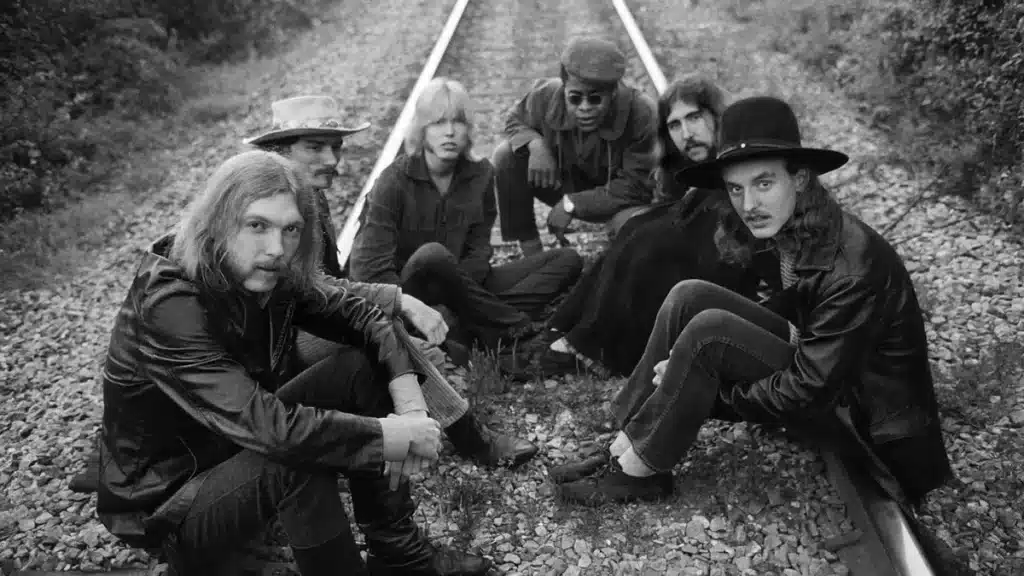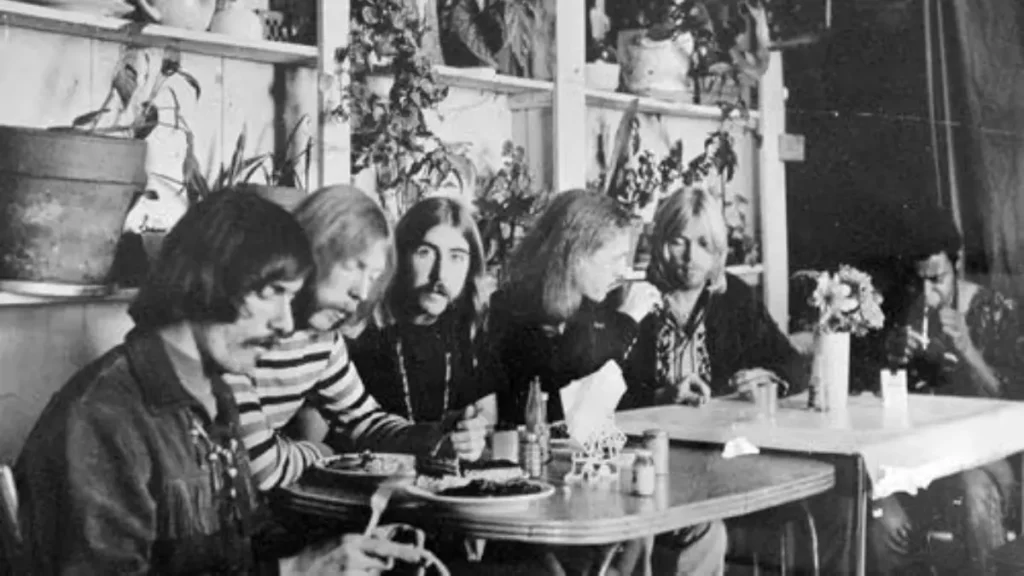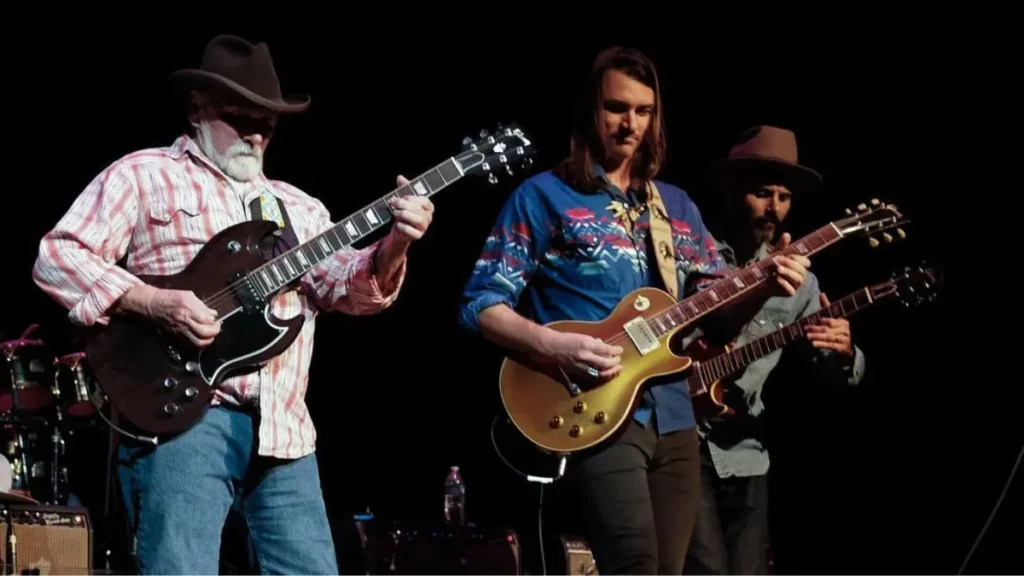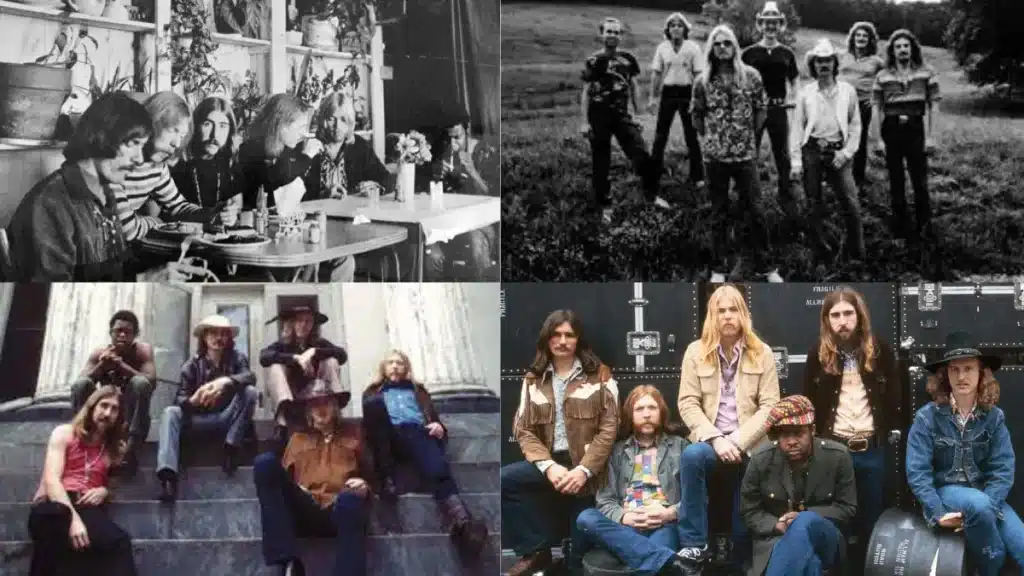The sunset on a musical titan on April 18, 2024, coincided with the passing of Dickey Betts, the co-founder and legendary guitarist of the Allman Brothers Band. At the age of 80, Betts peacefully departed at his Florida home, leaving behind a legacy that continues to resonate with music lovers across generations. His electrifying guitar work and poignant songwriting were instrumental in shaping the sound of Southern rock, a genre he helped define.
Dickey Betts A Childhood Steeped in the Southern Groove
Born Forrest Richard Betts in Bradenton, Florida, on December 12, 1943, Dickey was immersed in music from a young age. His father, a skilled guitarist himself, instilled in him a deep love for the instrument. Dickey’s early musical influences were a tapestry woven with threads of country, blues, and rockabilly—sounds that would later become the foundation of his songwriting.

By his teenage years, he was already a formidable guitarist, honing his skills in local bands and absorbing the sounds of blues giants like B.B. King and Freddie King. The spirit of adventure that would become a trademark of his music also manifested early on, as the young Betts famously left home at 16 to join the circus.
The Birth of a Brotherhood: The Allman Brothers Band
In 1969, destiny took a pivotal turn for Dickey Betts. He co-founded the Allman Brothers Band alongside the visionary Duane Allman. Joined by a collective of talented musicians, including bassist Berry Oakley, organist Gregg Allman, and drummers Butch Trucks and Jai Johanny Johanson, the Allman Brothers Band quickly carved a niche for themselves with a unique sound that transcended genre boundaries.

Dickey’s fluid, blues-tinged guitar work intertwined seamlessly with Duane Allman’s slide guitar mastery, creating a mesmerizing sonic tapestry. This dual-guitar assault became a signature of the Allman Brothers Band, influencing countless guitarists who came after them.
The band’s early years were a whirlwind of meteoric success and tragic loss. Albums like “At Fillmore East” and “Eat a Peach” captured the raw energy and improvisational brilliance of their live performances, while anthems like “Whipping Post” and “Midnight Rider” showcased Betts’ songwriting prowess.
However, the band was struck a devastating blow in 1971 with the death of Duane Allman in a motorcycle accident. Despite this immense loss, the Allman Brothers Band soldiered on, with Betts stepping up as a leader and musical anchor. He continued to write iconic songs like “Ramblin’ Man” and “Jessica,” tunes that remain staples of classic rock radio to this day.
Beyond the Brothers: A Solo Journey with Southern Flair
Dickey Betts’ solo career, which began in the late 1970s alongside his work with the Allman Brothers Band, showcased his versatility as a musician.
Albums like “Highway Calls” and “Dickey Betts” explored a more country-rock direction while still retaining the bluesy undercurrent that was his signature.
He collaborated with a diverse range of artists, including John Denver and Lonnie Mack, further demonstrating his ability to adapt and thrive in different musical settings.
A Tapestry of Influence: Beyond the Notes
Dickey Betts’ influence on rock music, and Southern rock in particular, is undeniable. His guitar work, characterized by its fluidity, expressiveness, and mastery of tone, inspired countless musicians.
His songwriting talents gifted the world with timeless classics that continue to be enjoyed by fans old and new.
The Allman Brothers Band, with Betts as a driving force, helped to define an entire genre, and their music continues to be a source of inspiration for aspiring musicians today.
Dickey’s induction into the Rock and Roll Hall of Fame alongside the Allman Brothers Band in 1995 stands as a testament to his enduring contribution to the world of music.
A Celebration of a Life in Music: Tributes Pour In
The news of Dickey Betts’ passing sent shockwaves through the music community. Fellow musicians, fans, and industry figures alike took to social media to share their condolences and celebrate his legacy.

“Dickey was a true guitar hero,” said blues-rock guitarist Joe Bonamassa in an Instagram post. “He blew my mind and made me want a Les Paul.” Gregg Allman, Dickey’s longtime bandmate, released a statement saying, “Dickey was a great musician and songwriter. He will be missed by all who knew him and his music.”
More Than Just a Ramblin’ Man: A Legacy of Inspiration
Dickey Betts’ legacy extends far beyond the iconic image of the “Ramblin’ Man” immortalized in his song. He was a complex and multifaceted artist whose influence on music transcended genre and generation. Let’s delve deeper into how Dickey Betts inspired not just as a musician but also as a songwriter, collaborator, and embodiment of the Southern rock spirit.

A Wellspring of Songwriting Inspiration:
Dickey Betts wasn’t just a phenomenal guitarist; he was a gifted songwriter with a knack for crafting relatable stories and evocative imagery. His lyrics explored themes of wanderlust (“Ramblin’ Man”), resilience (“Blue Sky”), and heartbreak (“Melissa”), resonating deeply with listeners. His songwriting wasn’t confined to a single style – he could weave elements of blues, country, and rock into his compositions, creating a unique sonic landscape. This versatility served as a source of inspiration for countless aspiring songwriters, encouraging them to explore different musical avenues and express themselves authentically.
Building Bridges Through Collaboration:
Dickey Betts’ willingness to collaborate with artists from diverse musical backgrounds further solidified his legacy as a boundary-pushing musician. His work with John Denver, a country music icon, demonstrated his ability to adapt to different genres and find common ground. Similarly, his collaborations with blues legends like Lonnie Mack showcased his deep appreciation for the roots of rock music. These collaborations not only enriched his musical tapestry but also exposed him to new audiences and broadened the appeal of Southern rock. Dickey Betts’ spirit of collaboration served as a valuable lesson for future generations of musicians, encouraging them to learn from different styles and create music that transcends genre labels.
Embodying the Spirit of Southern Rock:
Dickey Betts wasn’t just a musician who played Southern rock; he embodied its very essence. His music reflected the spirit of the American South – its storytelling tradition, connection to the land, and rebellious streak. He captured the freedom of open roads and the comfort of close-knit communities. This spirit resonated with countless fans, particularly those living in the Southern United States, and anyone who yearned for a sense of belonging and connection. Dickey Betts’ legacy lives on not just in his music, but also in the way he encapsulated the unique cultural identity of the South.
Beyond the Music: An Inspiration for Aspiring Musicians
Dickey Betts’ legacy as an inspiration extends beyond his musical contributions. He was a self-taught musician who honed his skills through dedication and perseverance. His journey from a young boy in Florida to a legendary guitarist serves as an inspiration for aspiring musicians from all walks of life. It demonstrates that with hard work, passion, and a willingness to explore, one can achieve greatness. Dickey’s story resonates with anyone who has ever dreamt of pursuing a music career, reminding them that the journey itself can be just as enriching as the destination.

Dickey Betts was more than just a “Ramblin’ Man.” He was a songwriter, collaborator, and embodiment of the Southern rock spirit who left an indelible mark on music. His influence stretches far beyond his guitar solos and iconic songs, inspiring generations of musicians through his songwriting talent, willingness to collaborate, and dedication to his craft. Dickey Betts’ legacy reminds us that music has the power to transcend genres, connect cultures, and, most importantly, inspire us to chase our dreams.
Dickey Betts, co-founder and legendary guitarist of the Allman Brothers Band, passed away on April 18, 2024. This piece explores his rich musical legacy, from his childhood steeped in Southern music to his pivotal role in shaping the sound of Southern rock.
We delve into his early days honing his guitar skills, the Allman Brothers Band’s meteoric rise and tragic losses, and his successful solo career that showcased his versatility. Dickey’s influence extended beyond his music, inspiring countless musicians with his songwriting talent, willingness to collaborate across genres and embodiment of the Southern rock spirit. The article concludes by highlighting his enduring legacy as a musical pioneer who continues to inspire generations.